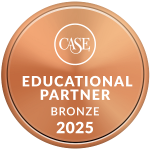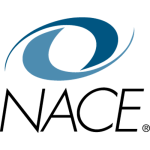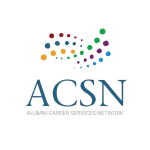practitioner perspective
Cassie Petoskey
Northwestern University
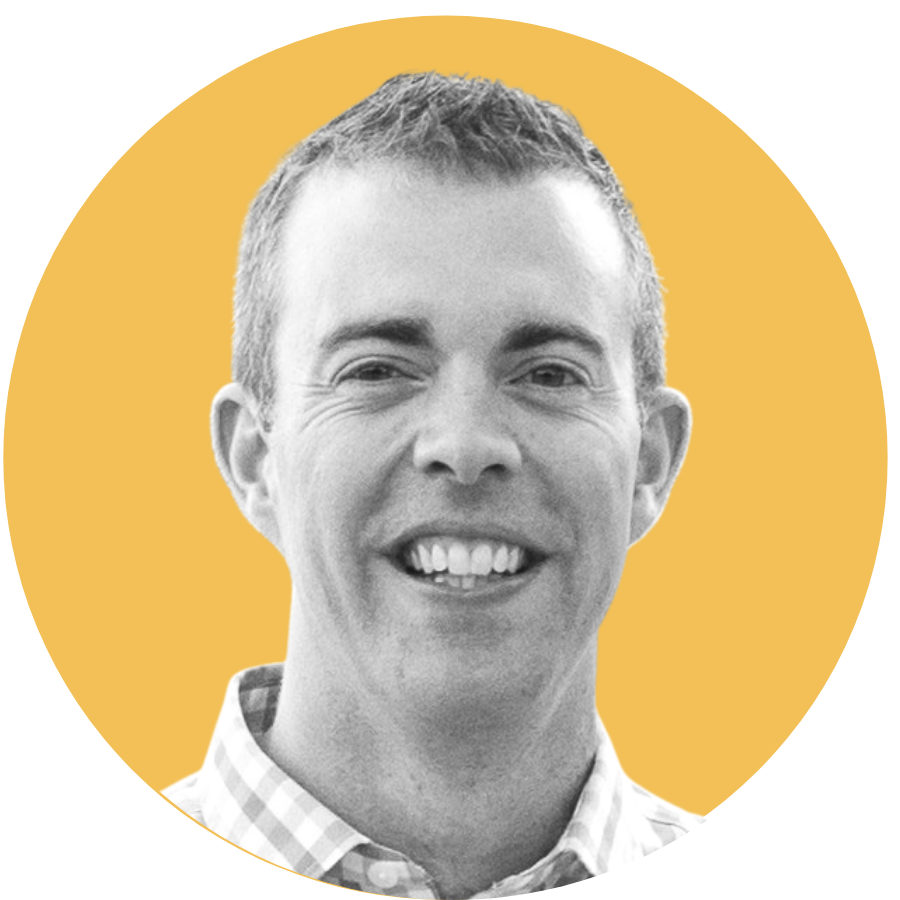
By RYAN CATHERWOOD
Protopia’s Ryan Catherwood interviews Cassie Petoskey, Director of Alumni Engagement and the Austin J. Waldron Student-Alumni Connections Program at Northwestern University.
Ryan: Cassie, Thank you so much for taking the time to chat about your role at Northwestern’s Weinberg College of Arts and Sciences, and your pathway to a partnership with Protopia.
You and I have known each other for several years now, and it’s been great to get to know you better in this context. I was looking forward to interviewing you and thought it would be helpful for folks that are just getting to know you for the first time to learn a little bit more about your role at the Weinberg College because it is a bit of a unique role in our space: a role focused on career engagement within a college. Would you be to share just a little bit more about it, how it came to be and what are some of the responsibilities that you have?
Cassie: Absolutely. I am the Director of the Waldron Student Alumni Connections Program where our goal is to help our Weinberg College of Arts and Sciences students explore different career options through connecting with alumni.
We know that anyone from an arts and sciences background can go off and do a number of different things, which can be very expensive and very daunting to figure out where to start. That’s where we have alumni come in and help students through stories about their experiences. It all grew out of Austin Waldron who endowed our program when he was a student. He was pre-med and some of those classes really beat him up, and he decided to pivot halfway through college. He had this moment of “What am I doing? What do I want to do?” And then pivoted to psychology and had a very successful career in operations and health care insurance. He wanted to make sure that students who were going through something similar had resources on campus. So it is a unique role within the college and it fits really well with the arts and sciences lens where you can go off into Finance from Biology, you can go to med school from English. This resource helps them narrow in.
Ryan: I love the whole idea. It’s kind of the liberal arts in general, right? You can major in whatever you want, get whatever type of job that you want. And it’s a concerted effort in this area to make sure that students know how to establish those connections and secure those future referrals, have those doors open in the future, that makes that promise come true.
So your role is at the apex of bringing to life the liberal arts promise. Could you share just a bit more about what you love most about working for the Weinberg College, which I guess is a more decentralized role in that there is a central advancement team, an alumni association — and you work in an alumni engagement role, but it’s for the college.
Cassie: Logistically speaking, I sit within alumni relations and development and in our Weinberg College dean’s office. So it’s a really fun way to stay connected on both sides, right?
From the alumni relations and development side, I get great recommendations from my colleagues who are meeting alumni in various ways. They might meet someone interesting and suggest this person should speak with students. I’m hearing from them often on the college side, I get to work directly with the programs and departments. I meet with environmental policy and culture, and hear what it is.
I’ve been in this role for about 4.5 years. From what students are interested in now compared to what they were four years ago, it evolves. So being plugged into both is really important.
Ryan: It’s a dotted line to the central unit and a direct reporting line to the dean. Is that right?
Cassie: It’s actually the opposite. Right now it’s a direct reporting line through alumni relations and development and dotted through the dean’s office. The program has been around since 2016 and that’s changed over time. It was directly under the dean and now it’s under ARD and so I get to navigate the different goals of those departments..
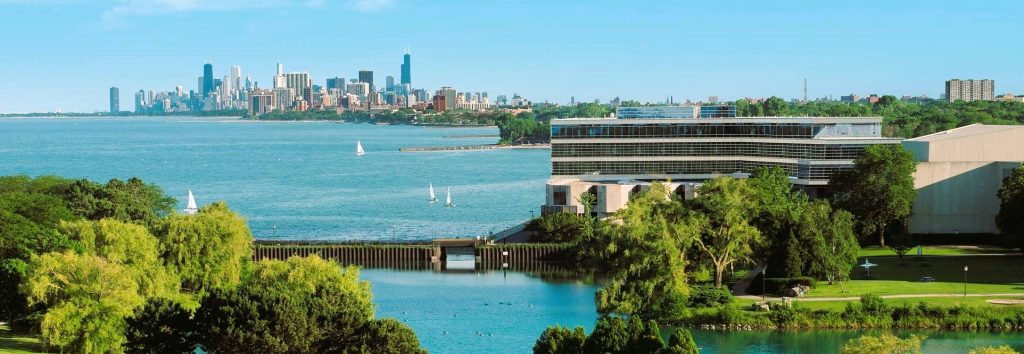
Ryan: Speaking of goals, my next question for you are the important areas of focus when it comes to engagement, how you’re thinking about goals for this year. What are some of your goals and areas for growth?
Cassie: That’s something that we’ve been thinking a lot about this year. Of course we always have numbers attached to our goals of how many alumni we want to engage, how many events we want to run, students engaged and all of that.
This year I have really been thinking about what a truly inclusive community looks like. Since I’ve started with the program, we’ve been focusing on different areas of diversity, equity and inclusion — making sure that our speakers show students that there are diverse voices in different industries, different age groups, that we’re featuring alumni from across the globe in our programs. To show students that there are speakers that are like them, right in these industries.
For example, we are asking questions on all of our alumni panels about how their identity has impacted their careers to let alumni share something unique about themselves, and help students see themselves in these roles. And understand that their personal identity is valuable in the workplace and their alumni community. We’re always looking for ways to enhance this in our programming which really ties into our work with Protopia.
Ryan: How does Protopia fit into your engagement plans? I assume you are building off the idea of having the opportunity to showcase the diverse set of perspectives and diverse voices within your program. How are you hoping the tool brings about transformational change?
Cassie: I think Protopia really helps us accomplish many aspects of our goals. Talking about this inclusive community aspect, students are able to ask their own unique questions and get connected with alumni who share aspects of their identity, aspects of their interest area, the industry they want to go into. It’s really a great way to build inclusivity into the Waldron Student alumni connections program where a student can come in and say “I’m a first generation low income student, and I’m considering these different career paths. Its’ a unique situation for me because I need to decide if I want to go make money or go back to school.” They’re able to get connected with alumni who share that identity and can provide insights directly.
Trans students are able to share aspects of their identity, students looking for specific niche industries, tech, climate, entrepreneurship. I only know so many alumni to connect students to, and Protopia is able to scale these great unique individual connections in a way that we wouldn’t be able to manually.
Before we launched Ask Wildcat, we offered students the opportunity to get connected one on one with an alum. We had about 30 students email me their unique background and I went through my network to connect them. It took me months to finally make all of those connections in the way that we strategically wanted to and communicate out to the right people. Ask A Wildcat is just blowing up our ability to make these connections.
Our goal was to have 100 student questions in the first year and we have had 50 within the first 3 months of launching Protopia. Our community wants to help each other, they want to ask questions, they want to get connected. And Ask A Wildcat just makes it so much easier to do that, which is really exciting.
Ryan: Yes, being able to scale introductions, scale connections, find like minded people that can help each other out without the administrative burden of matching is a rewarding effort, right? When you’re able to make those great connections, but it just takes so long. And Protopia really provides that avenue for scaling connections between students and alumni, and recent graduates and alumni.
So you alluded to a little bit about how it’s going so far since you launched Ask A Wildcat. Maybe you can elaborate bit?
Cassie: We are very excited about it. It’s a really great time to launch it. Everybody is talking about AI and how it work with education and the different areas of the workplace. I’ve heard multiple people say like “Oh, this is so fun to hear AI used for good.” Because on campus there are lots of different conversations about how AI is going to change the way we live and work. People are really excited about AI and the fact that we’re able to use it to make these great connections. With our Waldron program and the alumni we’re engaging and the departments that I’m working with. We want to make sure that we’re making those connections in the right way and this tool is a way to scale it in the right way.
The students can provide their own introductions, they can give their background and still feel like these are unique individual connections they’re making rather than going to like a Reddit feed.
I had feedback from a student recently who had really nice things to say about an alum they connected with. They said that it was like having conversation with my mom. That was the level of caring this alum provided to the student. It’s just so lovely to see. I think it’s just gonna grow from here.
Ryan; We’re so excited for you and the team at the Weinberg College at Northwestern. The sky’s the limit in terms of all the connections that you can facilitate. Thank you so much for taking the time to chat with me and share a bit more about your partnership and some of these early months. We’ll be back to check on you soon and see how things are going in the future.

Protopia’s artificial intelligence technology makes it truly simple for everyone in your community to connect for advice and support. Without another app to sign up for or learn.
Delivering Alumni As A Service across the entire learner’s journey.
Welcome to the Future.
© Copyright 2025. All Rights Reserved. | Terms Of Services | Privacy Policy | Cookie Policy | GDPR | Accessibility Statement
